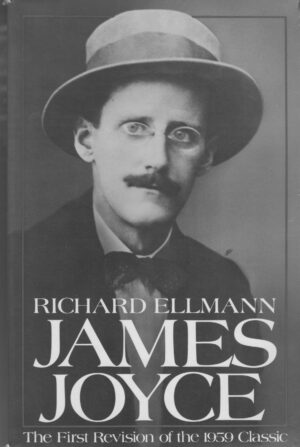
This ginormous book was, like the experimental novels written by its subject, a bit of a slog. But I made it through Ellmann’s revised biography of the great Irish novelist and man of letters. Eventually. A scholarly tome, the book’s narrative covers 745 pages. Footnotes and endnotes add an additional 200 pages, none of which I investigated, read, or scanned. I couldn’t bear it. I was done in by the minutia of detail the author incorporated into his study of a man, though quintessentially Irish, who left Ireland in his twenties never to return. That I guess was the biggest take-away for me. James Joyce left his father and mother and home island to chase his dream of fame and notoriety as an erudite man of letters, never to return. Not for his mother’s funeral. Not for his father’s illness and death. And not to spread the gospel of A Portrait, Dubliners, Ulysses, or Finnegan’s Wake up and down the coasts and byways of the Emerald Isle.
In addition to being struck by Joyce’s recalcitrance at returning to the place of his birth, Ellmann’s detailed accounting of decades of his subject’s failure to be recognized and published, including years of trying and failing to place Dubliners in the hands of readers both at home and abroad, complicated by years of reluctance by agents, editors, and publishers to chance prosecution for obscenity, struck a chord with this self-published author. To a far lesser extent, I too have tried and failed to attract an agent, editor, or mainstream publisher to work with me: to bring my words to a broader audience. But unlike Joyce, I’ve maintained, for the thirty-odd years I’ve been at the poet’s game, gainful employment so that my family never experienced the poverty and desperation James Joyce foisted upon his mistress/wife and two children. My wife would have never, even on the promise of my work becoming chosen for greatness by the powers-that-be, stood for what Joyce put Nora, Georgio, and Lucia through, including the period when he was finally recognized as a literary genius shortly before his death.
In the end, this book assisted me in understanding the driven nature of Joyce’s obsession to write and be published; marks of character I know intimately. But reading this mammoth work did not bring me closer to understanding that unattainable, virtually unreadable whale of a novel Joyce labored over in his attempt to re-write Homer. I still don’t understand Ulysses and this book did not tempt me to attempt a second read of Joyce’s masterpiece. There are too many other great books to read.
Still, as an in-depth, exhaustive study of a famous scribe, this book is indeed the ultimate repository of all things Joyce.
4 stars out of 5.
Peace
Mark


